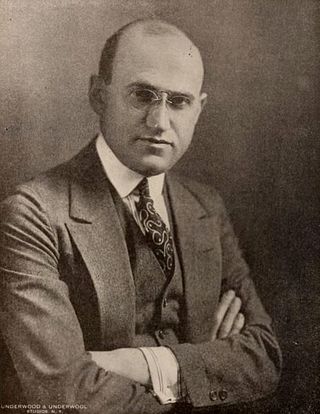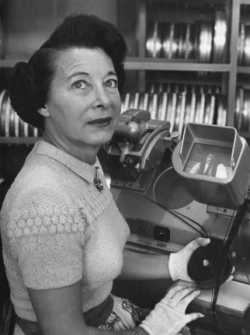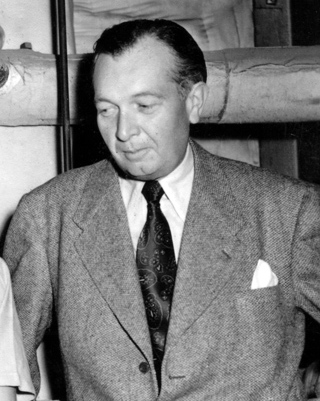Related Research Articles

The Best Years of Our Lives is a 1946 American drama film directed by William Wyler and starring Myrna Loy, Fredric March, Dana Andrews, Teresa Wright, Virginia Mayo and Harold Russell. The film is about three United States servicemen re-adjusting to societal changes and civilian life after coming home from World War II. The three men come from different services with different ranks that do not correspond with their civilian social class backgrounds.

Billy Wilder was an Austrian-born filmmaker. His career in Hollywood spanned five decades, and he is regarded as one of the most brilliant and versatile filmmakers of Classic Hollywood cinema. He received seven Academy Awards, a BAFTA Award, the Cannes Film Festival's Palme d'Or and two Golden Globe Awards.

William Wyler was a German-born American film director and producer who won the Academy Award for Best Director three times, those being for Mrs. Miniver (1942), The Best Years of Our Lives (1946), and Ben-Hur (1959), all of which also won for Best Picture. In total, he holds a record twelve nominations for the Academy Award for Best Director.

The Academy Award for Best Film Editing is one of the annual awards of the Academy of Motion Picture Arts and Sciences (AMPAS). Nominations for this award are closely correlated with the Academy Award for Best Picture. For 33 consecutive years, 1981 to 2013, every Best Picture winner had also been nominated for the Film Editing Oscar, and about two thirds of the Best Picture winners have also won for Film Editing. Only the principal, "above the line" editor(s) as listed in the film's credits are named on the award; additional editors, supervising editors, etc. are not currently eligible.

Samuel Goldwyn, also known as Samuel Goldfish, was a Polish-born American film producer. He was best known for being the founding contributor and executive of several motion picture studios in Hollywood. He was awarded the 1973 Golden Globe Cecil B. DeMille Award, the Irving G. Thalberg Memorial Award (1947) and the Jean Hersholt Humanitarian Award (1958).

Irvine "Cotton" Eugene Warburton was an American college football quarterback (1933) who became a film and television editor with sixty feature film credits. He worked for the Metro-Goldwyn-Mayer Studios and for the Walt Disney Studios, and is probably best known for his Academy Award-winning editing of Mary Poppins (1964).

Wuthering Heights is a 1939 American romantic period drama film directed by William Wyler, produced by Samuel Goldwyn, starring Merle Oberon, Laurence Olivier and David Niven, and based on the 1847 novel Wuthering Heights by Emily Brontë. The film depicts only 16 of the novel's 34 chapters, eliminating the second generation of characters. The novel was adapted for the screen by Charles MacArthur, Ben Hecht and John Huston (uncredited). The supporting cast features Flora Robson and Geraldine Fitzgerald.
Arthur P. Schmidt was an American film editor and producer. He had more than sixty film credits for editing from 1934 through 1962. In the 1950s, Schmidt edited five films directed by Billy Wilder, who has been called one of the great 20th Century filmmakers. In the 1960s, Schmidt was the associate producer for seven Jerry Lewis comedies.
The 18th Academy Awards were held on March 7, 1946, at Grauman's Chinese Theatre to honor the films of 1945. Being the first Oscars after the end of World War II, the ceremony returned to the glamour of the prewar years; notably, the plaster statuettes that had been used during the war were replaced by bronze statuettes with gold plating and an elevated base.

Anne Voase Coates was a British film editor with a more than 60-year-long career. She was perhaps best known as the editor of David Lean's epic film Lawrence of Arabia in 1962, for which she won an Oscar. Coates was nominated five times for the Academy Award for Best Film Editing for the films Lawrence of Arabia, Becket (1963), The Elephant Man (1980), In the Line of Fire (1993) and Out of Sight (1998). In an industry where women accounted for only 16 per cent of all editors working on the top 250 films of 2004, and 80 per cent of the films had absolutely no women on their editing teams at all, Coates thrived as a top film editor. She was awarded BAFTA's highest honour, a BAFTA Fellowship, in February 2007 and was given an Academy Honorary Award, which are popularly known as a Lifetime Achievement Oscar, in November 2016 by the Academy of Motion Picture Arts and Sciences.
William Henry Reynolds was an American film editor whose career spanned six decades. His credits include notable films such as The Sound of Music, The Godfather, The Sting, and The Turning Point. He also was associated with two box-office bombs, Ishtar and Heaven's Gate, which he was the executive producer.

Dodsworth is a 1936 American drama film directed by William Wyler, and starring Walter Huston, Ruth Chatterton, Paul Lukas, Mary Astor and David Niven. Sidney Howard based the screenplay on his 1934 stage adaptation of the 1929 novel of the same name by Sinclair Lewis. Huston reprised his stage role.
Stewart Bridgewater Linder was an American film editor with 25 credits. He shared the Academy Award for Best Film Editing for the 1966 film Grand Prix, which was the very first film on which Linder was credited as an editor. Linder is particularly noted for his long collaboration (1982–2006) with the director Barry Levinson. Perhaps the best remembered film from their collaboration, which extended over 20 films, was Rain Man (1988), which won the Academy Award for Best Picture. Linder won an ACE Eddie award for editing this film, and was nominated for both the Academy Award and the BAFTA Award for Best Editing.

Barbara "Bobby" McLean was an American film editor with 62 film credits.

William Wyler was a Swiss-German-American director and producer.

Doane Harrison was an American film editor whose career spanned four decades. For nearly twenty years, from 1935–54, he was a prolific editor of films for Paramount Pictures, including eleven films with director Mitchell Leisen. For twenty-five years, from 1941–1966, Harrison was editor, editorial supervisor or associate producer on all the films directed by Billy Wilder, who is now considered one of the great 20th-century filmmakers.
Aviva Slesin is a documentary film-maker.
Arthur Eugene Milford was an American film and television editor with about one hundred feature film credits. Among his most noted films are Lost Horizon, On the Waterfront, A Face in the Crowd, and Wait Until Dark.

Al Clark was a prolific American film editor whose career spanned four decades, most of which was spent at Columbia Pictures. He was nominated for 5 Academy Awards and 1 Emmy during his career. He is credited with editing over 120 films, and towards the end of his career, in the 1960s, he also edited several television series.
References
- ↑ "Daniel Mandell, Won 3 Film Editing Oscars". The New York Times. June 13, 1987. This article incorrectly indicates that Mandell was nominated for an Academy Award for Wuthering Heights (1939).
- ↑ Birth and death information checked at the Social Security Death Index, where it is listed as unverified.
- ↑ See Daniel Mandell at IMDb for list of film credits.
- ↑ "Film Editing Facts". Academy of Motion Picture Arts & Sciences. March 2010. Archived from the original on 2009-10-19. Retrieved 2010-07-18.